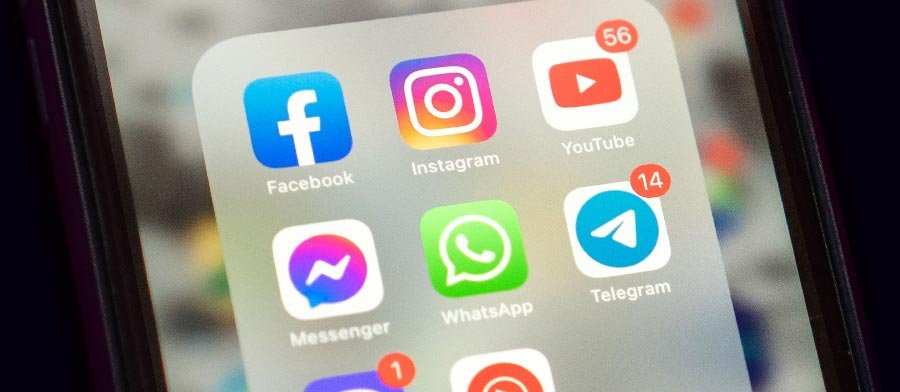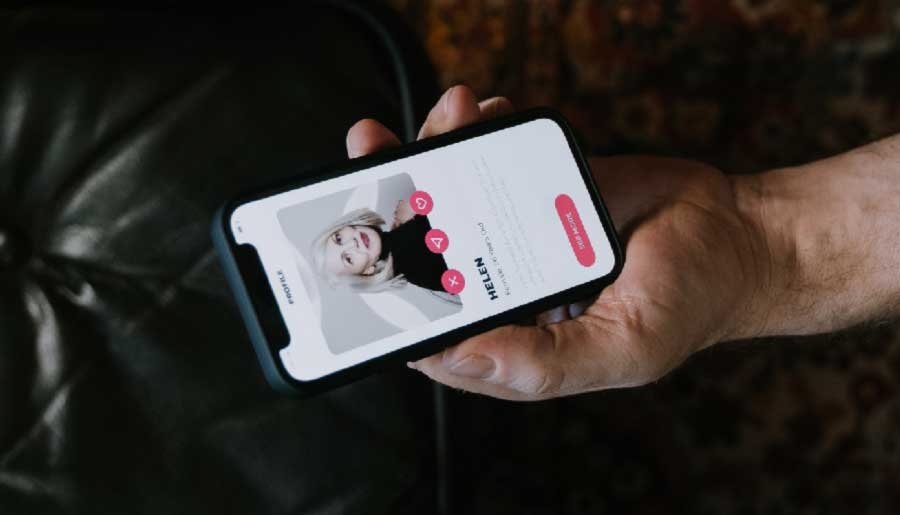People devote a third of their waking time to mobile apps. We are expected to actively participate on social media and consume content. It’s the big tech companies that determine what content we get to see. YouTube can make a video a big hit or mute a particular view without a hitch. This is not done by hand, because that would take ages. Instead, Google and other companies rely on sets of rules to be followed in calculations or other problem-solving operations: algorithms.
But these algorithms that feed us content, often go unseen and are nearly unalterable by the user. This instantly raises questions: How much of our lives are determined by automatically generated suggestions? Is there any particular information that we are not fed? Are we aware of what we consume? Should we go on an algorithm diet?
Our Craving for Connectedness
Man is nothing without others.
Our sense of interconnectedness has taken us far. We have collectively climbed to the top of the food chain. Novel technologies have come about through collaboration. A good idea can be chiseled into groundwork with the input of many hands and collective thinking.
Outside of family, we were mostly working together intermittently; at school, work, or a project in the community. But at no point in time, we were connected 24/7 to virtually everyone in the world. Until the last few decades.
Not only is our smartphone constantly on, but so are we as a result. Notifications for likes, comments, updates. Push notifications for news on the other side of the ocean.
But if you completely shut yourself out from all the latest news, influencers, Netflix series, what’s there to talk about at the water cooler at work? You can’t completely cut off from everything that’s going on in society.
In the old days, everyone with a TV watched the same channels. There was nothing else on TV. If there was nothing on that turned you on, it was easy to turn it off. Now everyone has multiple personalized channels at their fingertips. Our attention span is now measured in seconds rather than minutes or hours. But fortunately, a new video started playing automatically, without having to touch the screen. How convenient!
Anxiety Caused by Social Media
For insecure people, social media can intensify anxiety. You tap into a personalized stream of people you know; people you want to be like, people you despise. Rankings apply just as much, or perhaps more, online. In the outside world, you are judged by your appearance, but online much more so. You are constantly reminded of your social status.
135 followers. 523 following.
There is a fear of sharing the wrong thing. It’s nice to have all those comments from your best friends, who support you no matter what, but what does the silent crowd think? Do people sigh when they see a post of mine? Why isn’t person Y following me on Instagram? How many people would prefer to mute me in real life?
For some, the number of connections you have is a measure of success. Followers means you are attracting an audience. People care for the things you say. When that changes, either positively or negatively, your world will look different. You may get opportunities, such as making money with your profile by recommending products, or, on the contrary, become socially isolated.
There are those who are not bothered by any of this and post without overthinking (or don’t post anything at all). People who naturally already could care less about what the outside world thinks of them and are not concerned with the hierarchy of society. Sigma males are an example of this.

A Never-Ending Engagement
Social media is all about engagement. You want people to interact with your app.
A common technique used to increase engagement is to use evocative language and polarizing viewpoints. Especially discussions that clearly have two opposing camps — Democrats/Republicans, Real Madrid/FC Barcelona, Depp/Heard — make it easy to unleash a battle between the two followings. If people go all out against each other under your post, then your post becomes trending and propagated by algorithms.
It’s these algorithms that determine what is presented to us. These algorithms are not only based on our own history — that would create too small a bubble — but also feeds us videos and posts that other people with similar consumption patterns like. Now they have a profile of you and then they can generate suggestions. In fact, they have almost complete autonomy over your suggestions. The algorithm has no built-in morality. It relies on measurable data, such as interaction rate, number of comments since publication, number of replies to comments, and so on.
We get triggered by comments, but we don’t even know who we’re up against. It could be someone on the other side of the world. It could just be a troll or bot. If someone says something terrible in real life, you can punch them in the nose. Online, you only have a keyboard with Capslock at your disposal. Your only hope is that your giant letters strike and he reads your feisty rebuttal. Or better yet, he replies and you can diss him one more time. You see, I’m right! I have the most upvotes!
Every day has its small victories… (but you don’t gain anything)
The User as Test Subject
If it’s up to the tech companies, everyone spends as much time as possible on their app. And they have come up with a few psychological tricks to win you over.
One of those tricks is to tap our FOMO; make people fear that they are missing out on something.
“Two people are also looking at this product…”
” Only one room left…”
“Your BFF has liked …”
“Have you read this trending article…
A/B testing is used to see what tricks works best. The more emotion and sense of urgency it generates, the better. The customer experience should be one you can’t say no to, like opening a pack of virtual football players in FIFA. This is used to persuade you to buy, read or view something. But also to ensure that you remain active in the app for as long as possible. The longer you stay, the more time there is to serve you ads or sell you something.

Where are Algorithms Used?
Algorithms are the backbone of computer science. They are not just in YouTube, Facebook, TikTok, Instagram, Twitter and every other social media platform. 92% of the entire world population relies on Google to serve search results.
Algorithms also aid us in searching for the one. A third of US adults has used a dating site or app. Not much of a surprise, since dating apps are free to install. But there is a catch before you can meet your catch. These companies also want to earn money off of you.
The true proposition of Tinder is actually as follows:
At Tinder we are happy to increase your chances of finding a nice date. The stack of profiles of single guys and girls is shuffled by our SMART* Artificial Intelligence. Just pay $30 a month and we’ll move your profile card a little up the pile. By the way, this price is a little higher for older men, but you guys get that, right? Don’t you?
Good luck with data-driven dating!
* Selective Matching Aimed at Recurring Takings

Taking Control over Algorithms
Features that help users configure their timeline are hidden or removed altogether. Pity you only want to see videos you are interested in, here’s a political discussion people are going nuts over. User experience is so 00s, everything is about engagement.
We end up in funnels, and not everyone seems to be able to escape.
Every TikTok trend is another reason to dance. A dance led by a data hungry company owned by the Chinese government. The same Chinese government that limits app time for vulnerable children and limits gaming to 3 hours a week.
These kinds of restrictions from the government are of course completely against Western values. We have liberty and control government authority through democracy. In our society the responsibility lies with the user, but are users able to set their own limits?
I believe governments need to do more to protect citizens from data hungry companies. In Europe, the European Union is already making strides to put a halt to companies and their lust for data. Regulations are put in place and fines are imposed. Cookie legislation may not be a perfect solution in terms of user experience. But it does show that, under pressure from governments, consumer organizations and a large group of users, it is possible to achieve improvements.
How to Protect Yourself against Algorithms
But the responsibility still lies with you. How do you make sure you don’t lose yourself in the online and offline world? Do you take enough time for yourself and do you ever log off completely?
A few challenges you can take on yourself:
How to Control your Smartphone Addiction
- Set a goal for the number of hours you spend on your smartphone each day.
- Track how many hours you actually use your smartphone with a digital wellbeing app. You can make exceptions for apps that are useful, such as apps you need for school or work.
- Are you spending way more time than you wanted? Set a time limit for apps that are distracting you the most.
Tips for reducing your time spent on your smartphone:
- Leave your smartphone at home.
- Enable Airplane Mode when focusing on something else
- Set a rule for yourself that you cannot bring your phone into your bed room
- Place your phone in hard to reach places. Think of a bag, drawer or charging at a power outlet that is hard to reach.
More About This Topic
Flow: Focus on Productivity
In a state of flow, you are so focused on your activity that you lose track of time and achieve your goals with ease. How do you enter a state of flow?
9 YouTube Channels That Teach You Something
You can learn a lot from YouTube if you know where to search. Here’s a list of nine YouTube channels that actually teach you something.




